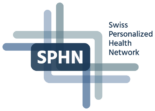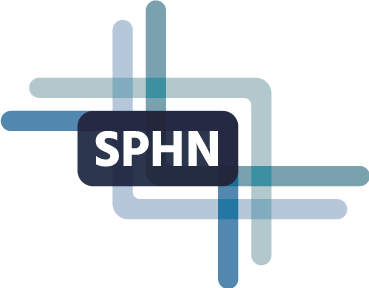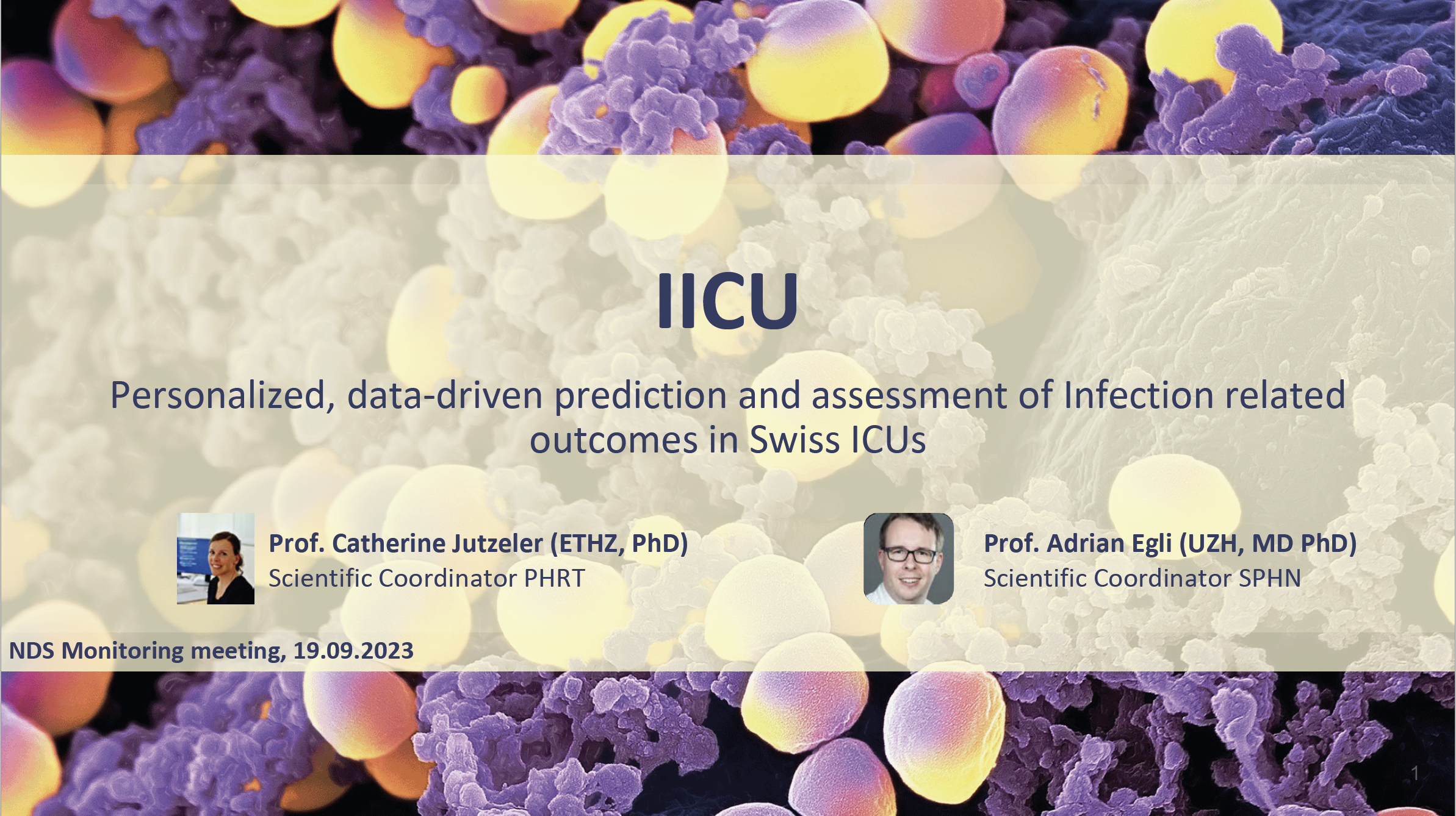Personalized, data-driven prediction and assessment of Infection related outcomes in Swiss ICUs (IICU)
Main PIs: Prof. Adrian Egli (UZH), Prof. Catherine Jutzeler (ETHZ), Prof. Karsten Borgwardt (ETHZ, until 1 February 2023)
Project consortium: Prof. Manuel Battegay (USB), Prof. Thierry Calandra (CHUV), Prof. Jean-Daniel Chiche (CHUV), Prof. Hansjakob Furrer (Insel), Prof. Gilbert Greub (CHUV), Prof. Stephan Jakob (Insel), Prof. Catherine Jutzeler (ETHZ), Dr. André Kahles (ETHZ), Prof. Laurent Kaiser (HUG), Dr. Aitana Lebrand (SIB), Dr. Stephen Leib (Insel), Prof. Sylvain Meylan (CHUV), Prof. Jerome Pugin (HUG), Prof. Yok-Ai Que (Insel), Prof. Gunnar Rätsch (ETHZ), Prof. Thierry Roger (CHUV), Prof. Jacques Schrenzel (HUG), Prof. Reto Schüpbach (USZ), Prof. Martin Siegemund (USB), Prof. Reinhard Zbinden (USZ), Prof. Annelies Zinkernagel (USZ)
Project manager: Dr. Magdalena Lukamowicz-Rajska (USZ), Birke Mebold (USZ)
Data manager: Dr. Nora Toussaint (Nexus ETHZ)
Executive summary
Goal of the NDS
Infections show a range of endo- and phenotypes with variable impact on clinical course and outcomes. To account for heterogeneity in a data-driven manner and thereby, achieve personalized assessment, characterization and outcome prediction, clinical data warehouses (CDWH), and our driver project Personalized Swiss Sepsis Study (PSSS) enabled major advancements in accessing, collecting, and structuring data on host, pathogen characteristics, and temporal developments. During PSSS, it became evident that two key data gaps remain: a) lack of clinical context and b) missing interpretation of clinical phenotypes. Profound understanding “which intervention was done and for what reason” is critical for patient management. Therefore, we will develop harmonized clinical annotation for infections and outcomes, as well as for infection-related context and interpretation. The resulting data will enable contextual data from clinical experts and data-driven approaches for patient assessment, characterization, and outcome prediction. Our approach will revolutionize prediction of infection-related outcomes on intensive care units (ICUs).
First goal: Maintain the PSSS platform and expand beyond sepsis to other infections, ensuring FAIR principles and collaborations.
Second goal: Focus on data quality by harmonizing annotation of phenotypes, context, and interpretation with shared standardized definitions and ontologies.
Third goal: Form a sustainable network between ICUs, infectious diseases, microbiology, and data science. Improving accessibility of data and tools to promote research. Contemporaneously, forming a national and international research platform.
Fourth goal: Develop both clinical and data-driven procedures for rapid and precise assessment of patients exhibiting infection-related phenotypes. In-depth and multi-dimensional characterization of endo- and phenotypes including clinical presentation, -omics, and pathogen properties. Early prediction of outcomes, accounting for individual clinical context. Validation of digital biomarkers and evaluation of potential treatment implications e.g., focusing on antibiotic stewardship.
Fifth goal: Generation of a multicentric FAIR public data repository ready for 1st/2nd/3rd party use focusing on outcomes in ICUs, with software package for phenotype assessment, characterization, biomarker discovery, and retrospective clinical validation.
Click here to read the full executive summary.
Presentation from the NDS-mini symposium 19 September 2023, Lausanne
Click here to see the slides from the IICU presentation at the NDS mini-symposium in Lausanne
Kick-off presentation
Click here to see the slides from the IICU kick-off presentation.
Media coverage on IICU
I. Böhm (25 October 2023). Un écosystème de données au service de la médecine personnalisée. Bulletin des médecins suisse 2023;104(43):18–21 (in French).
I. Böhm (25 October 2023). Ein Ökosystem für die personalisierte Medizin. Schweizerische Ärztezeitung 2023;104(43):18–21 (in German).


